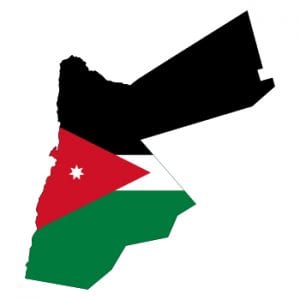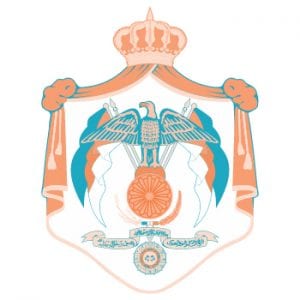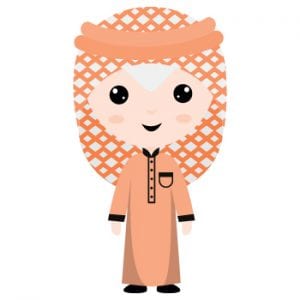Top Phrases Jordanian Arabic Language

Arabic-speaking countries such as Oman, Morocco, Jordan, etc. have different varieties of Arabic dialects. Jordanian Arabic is one of the dialects of the Arabic language that the population of the Kingdom of Jordan speaks. Jordanian dialect of Arabic falls under the mutually intelligible varieties of Levantine Arabic. Jordan Arabic varieties belong to the Semitic languages. Hence, French, English, and Turkish have lexical influences over these dialects. More than 6 million people throughout the Levant can speak Jordanian Arabic. Many other Arabic-speaking regions also know how to speak them.
The official language of Jordan is Modern Standard Arabic, which is used all over the media and in written documents. At the same time, informal or everyday colloquial varieties of language are used in daily conversations. However, the use of language in Jordan, like other Arab countries, is also characterized by diglossia. This means that two languages or different dialects are spoken by the same speakers. Aside from a variety of Jordanian languages, speakers also have to deal with other things. There are high irregularities and difficulty in determining verb conjugations and plurals from their root letters. Hence, there are differences in addressing females, males, and groups. Other than this, there are word differences if spoken by a female or a male. Check out these amazing facts about the Arabic Language.


Legal status and writing systems
Jordanian Levantine has diverged significance from modern standard Arabic and classic Arabic. Hence, it is still not regarded as the official language of Jordan. Whenever textbooks are published, their writing system varies. Instead of the Levantine language, they are usually published in French, English, and an MSA. However, the scholastic Jordanian Latin alphabet (JLA) system is the most common way of representing Levantine Arabic in writing. Other Levantine countries use their own accents, transliterations, and alphabets. Hence, this results in inconvenience between cross-border communications.
Varieties of regional Jordanian Arabic
The Jordan country language that is spoken daily varies through different regions. Whereas most Jordanians mutually understand the common Jordanian dialect. Different variants influence the altogether pronunciation, vocabulary, and grammar of the language. However, there are five Jordanian Arabic varieties.
Northern
The people of Amman to Irbid in the far north speak this variety. Hence, there are many local variations in all the sedentary areas. In terms of pronunciation, /k/ is pronounced as ([tʃ]) and /q/ is mostly [g]. However, Northern varieties belong to the southern dialect of the Levantine Arabic language.
Hybrid variety
It is the present-day spoken language of the Jordanians. Hence, it is a modern dialect of the Jordanian language. This variety came into existence after the earmarking of Amman as the capital of the Kingdom of Jordan early in the 20th century. This is the result of the union of the language of populations that came from southern Jordan and northern Jordan. Hence, some of the population from Palestine also came here later. This is why Arabic varieties spoken by these populations have mixed features. Jordanian North dialect had a strong influence during the emergence of the language. Hence, there are many Arabic counterparts of the technical words in modern standard Arabic.
Bedouin
Bedouins that belong to Bedawi Arabic speak Bedouin. They are mostly from the desert east of the Jordanian mountains and high plateaus. However, People from other regions don’t widely use this dialect. Most people often consider it as a truer to the Arabic language. But this is just an opinion; It doesn’t show any linguistic evidence. Hence, some villages and towns in the Badia region east of Jordan’s high plateaus also speak non-Bedouin.
Southern/Moab
People of cities such as Al Karak, Shoubak, Tafilah, Ma’an, and their countryside speak this variety. These areas belong to the south of Amman. Hence, this dialect is replete with the village-to village and city-to-city differences. It is named after the ancient kingdom of Moab. Moreover, it belongs to the outer southern dialects of the Levantine Arabic language. In this dialect, different pronunciations of a single word change its meaning.
The final vowel of this dialect is (æ~a~ɐ). Hence, It is commonly written with tāʾ marbūtah (ة), and its pronunciation uplifts to (e). You can take a look at this example:
Maktaba, which means (Fuṣḥa) becomes Maktabeh (North), Mektaba (Bedawi), and Maktabe (Moab).
Aqaba variety
The people of Aqaba speak this dialect. Hence, they also speak many other dialects.


Pronunciation
Consonants
Arabic alphabets have some letters and phonemes that easily transliterate into English. However, others are completely difficult or foreign for English speakers.
Stress
One syllable has more stress than other syllables in Jordanian words. The tone of the vowel and the location of the stress mostly communicates the meaning of the words. Hence, changing the position of stress can change the meaning of the word. This is truer than in other Western languages. However, those who learn the Jordan language have to pronounce and listen to the stress carefully.
Vowels
Jordanian Arabic has much fewer than English in contrast with the rich consonants list. However, vowel duration is relevant in English. Only three phonemic vowels, a, I, and u, are common in Arabic.
General sentence structure
In a sentence, pronouns have to adjust to the verb, its actor, and its time. Hence, pronouns change to the prefixes. If a verb starts with a constant “Inta,” It becomes ‘Bt,’ Inti becomes Bıt, Ana becomes ba, and so on. However, this happens in the case of present perfect and participle with the verb. Moreover, the verb can have an infinitive form Qadr. Arabic numerals are printed from left to right, unlike the Arabic script.
Top phrases Jordanian language
There are some phrases and words in Jordanian Arabic that will help you gain language skills. Both children and adults can easily learn Jordanian if they have a strong command of these phrases.
Greetings
- Hello! ( Marhaba)
- Good morning! (Sabah-al-khair)
- Good Evening! (masa’ a al-khair)
- Good night! (lailah saʿīdah)
- Hello! (sg/pl)(yawmun sa ʾid)
- Bye! (maʿa s–salāma)
- Good bye!(ilā l al – Liqa ‘)
General vocabulary
- Yes (naʿam)
- No (lā)
- Okay (ḥasanan)
- Maybe (rubbamā)
- Thank you! (šhukran)
- Excuse me (almaʿṯrah)
- You are welcome! (ʿafwan)
- I’m sorry (ana āsif)
- We don’t have (ʿindanā laysa ʿindanā)
- I have…/I don’t have (ʿindī laysa ʿindī)
- Information (ʾistiʿlāmāt)
- There is no… (yūğad lā yūğad)
Vocabulary for comprehension
- I don’t speak any Arabic (ʾanā lā ʾtakallamu l-ʿarabiyyah)
- I don’t understand that (ʾanā lā ʾafhamu hāḏā)
- Do you speak..? (hal tatakallamu… ?)
- Just a moment, please (laḥÛah min faḍlik?)
- Does anyone here speak (hal yatakallam ʾaḥadun mā hunā…)
- Can you write that down, please? (min faḍlik, ʾuktub āḏā?)
- Could you please repeat that? (min faḍlik, karrir hāḏā?)
Introductions in Jordanian Arabic
- I am traveling with… (ʾanā ʾusāfiru maʿa …)
- My name is (ʾismī)
- I’m from (anā min…)
- I’m.. years old (ʾanā ʿumrī….sanah)
- I am traveling alone/ I am not traveling alone (ʾanā ʾusāfiru waḥdī / ʾanā lā ʾusāfiru waḥdī)
- I’m married/I am not married (ʾanā mutazawwiğ / ʾanā lastu mutazawwiğan)
These words and phrases will help you get around the country of Jordan. Whether you are visiting for pleasure or business matters, these phrases will surely make your interaction with Jordanians easier hence, if you are willing to learn Jordanian Arabic or any other dialect of Arabic. You can easily learn it through many textbooks, videos, and lectures available all over the internet.





